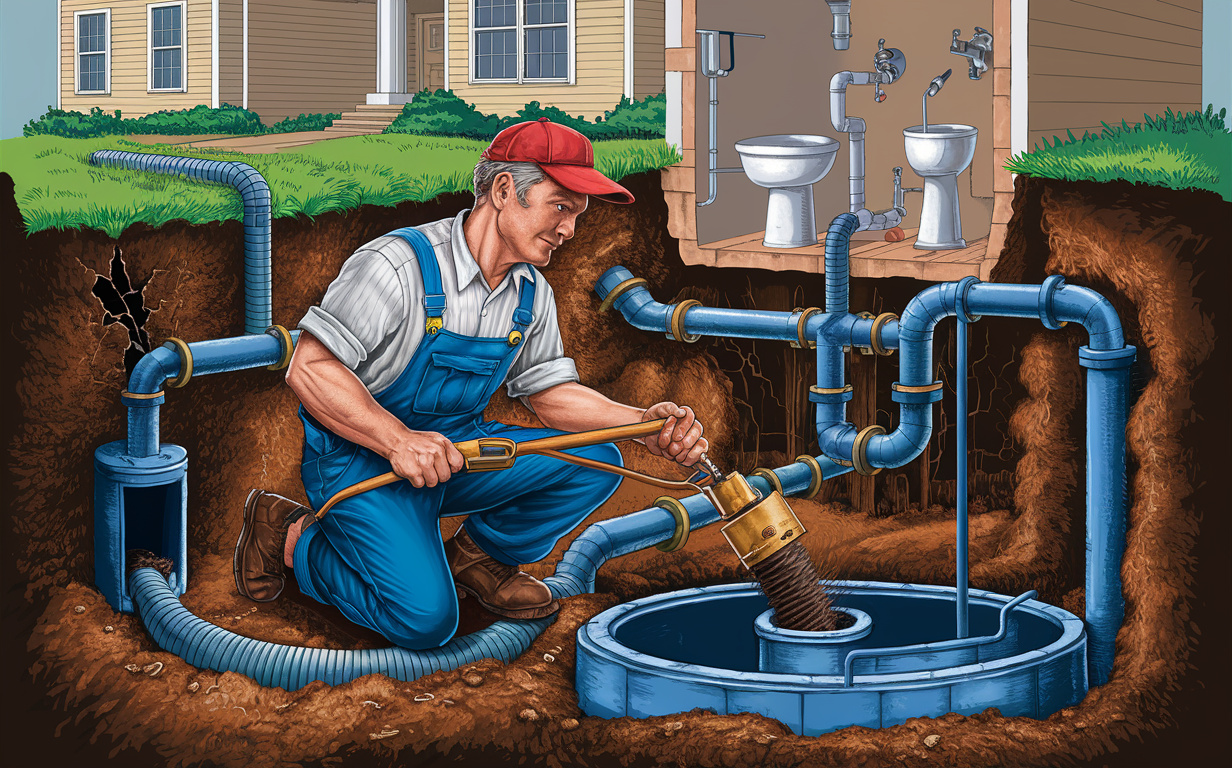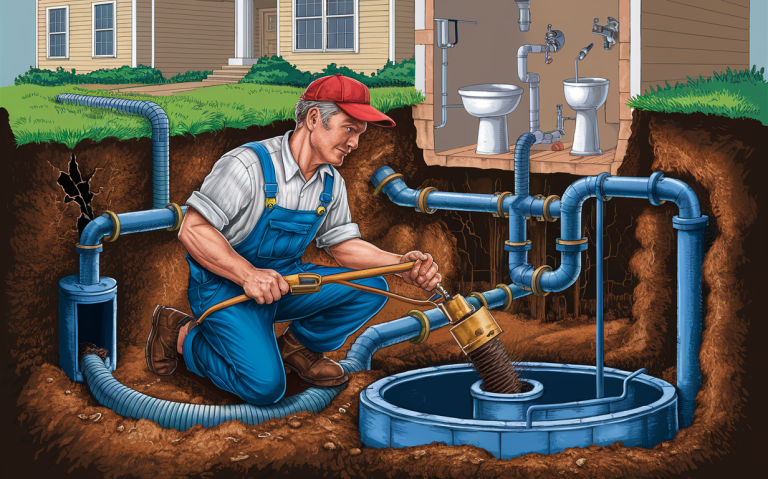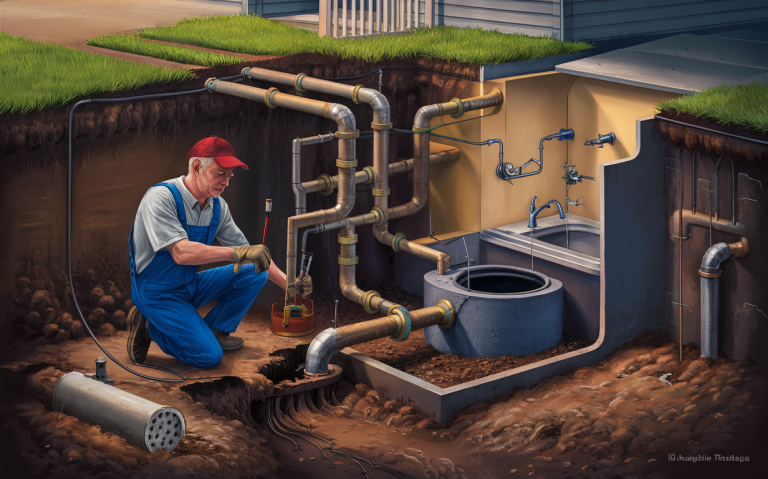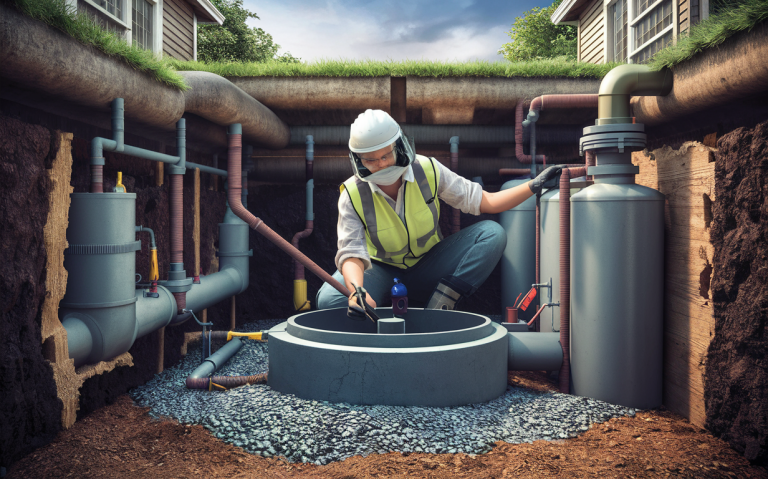Lift Station Pumping and Cleaning Services: Remarkable Benefits
Discover why routine lift station pumping and cleaning services are vital for Middletown’s wastewater management, protecting community health
Lift station pumping and cleaning services are vital for maintaining the health and efficiency of Middletown’s wastewater infrastructure. These services help prevent system failures, reduce odors, and extend the lifespan of lift station equipment. Regular maintenance is key to keeping our community’s sewage systems running smoothly.
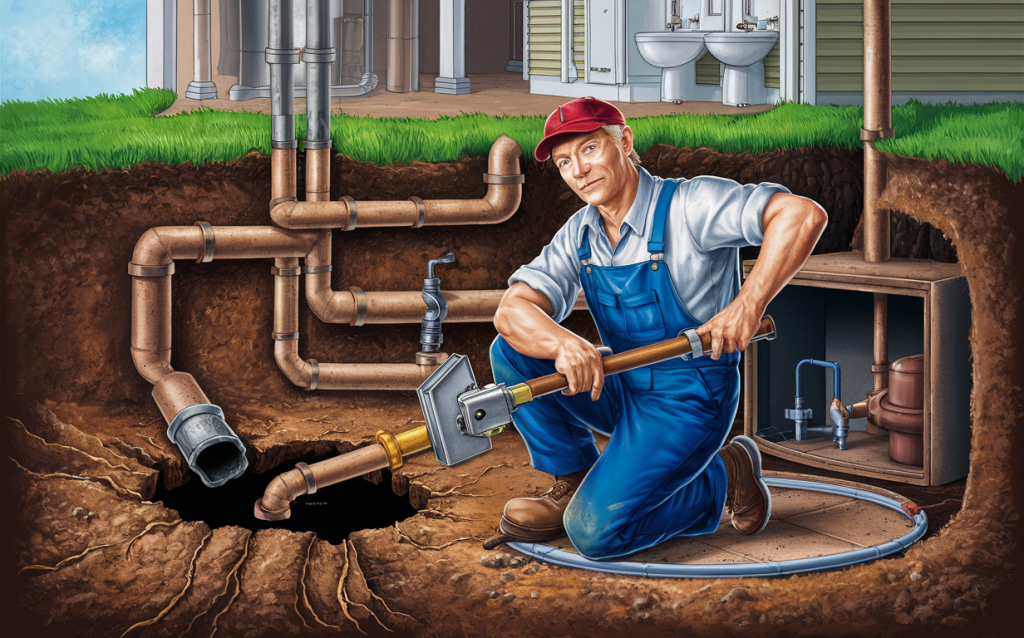
Table of Contents
Key Takeaways:
- Lift station pumping and cleaning are critical components of Middletown’s wastewater system
- Regular pumping and cleaning prevent blockages and system failures
- Proper maintenance reduces unpleasant odors and extends equipment life
- Professional services ensure thorough cleaning and inspection
- Scheduled maintenance can save money on costly emergency repairs
Understanding Lift Station Pumping and Cleaning Services in Middletown’s
Lift station pumping and cleaning play a crucial role in Middletown’s wastewater management system. These facilities are designed to pump sewage from lower to higher elevations, allowing for efficient transport of wastewater to treatment plants. Without lift stations, our hilly terrain would make it challenging to move sewage using gravity alone.
Components of a Typical Lift Station
A Lift station pumping and cleaning consists of several key parts working together to move wastewater effectively. The main components include:
- Wet well: This is where the wastewater collects before being pumped.
- Pumps: These powerful machines move the wastewater from the wet well to the next point in the system.
- Valves: They control the flow of wastewater through the pipes.
- Control panel: This electronic brain manages the operation of the pumps and other equipment.
- Alarm systems: These alert operators to any issues or malfunctions.
Understanding these parts helps us appreciate why regular maintenance is so important for keeping the whole system running smoothly.
The Importance of Regular Lift Station Maintenance
Regular maintenance of Lift station pumping and cleaning is not just a good practice – it’s essential for the health of our community and the environment. When lift stations aren’t properly maintained, they can lead to serious problems like sewage backups, overflows, and equipment failures. These issues can cause health hazards, environmental damage, and costly repairs.
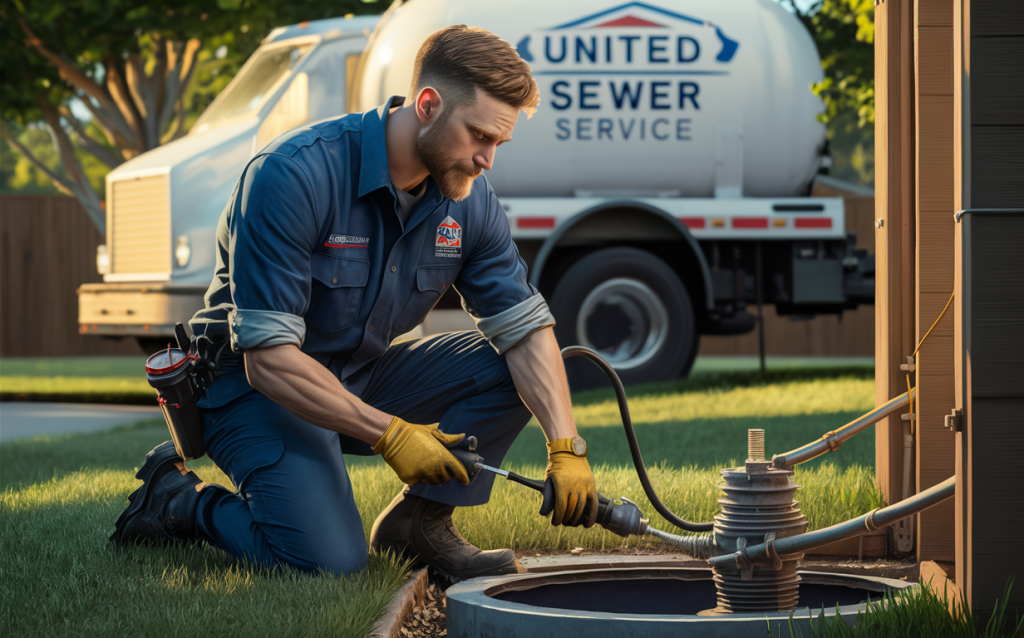
Preventing System Failures
One of the primary reasons for routine lift station pumping and cleaning maintenance is to prevent system failures. Over time, debris, grease, and other materials can build up in the wet well and on pump components. This buildup can cause pumps to work harder, leading to increased wear and tear. Regular cleaning removes these accumulations, helping the system operate more efficiently and reducing the risk of breakdowns.
Reducing Odor Issues
Another benefit of regular maintenance is odor control. As wastewater sits in the lift station, it can produce unpleasant smells that affect nearby residents and businesses. Routine cleaning helps remove the sources of these odors, making the area around the lift station more pleasant for everyone.
What Does Routine Lift Station Pumping Involve?
Lift station pumping and cleaning services are a comprehensive process that involves several steps to ensure the system is thoroughly cleaned and functioning properly.
Initial Assessment
The first step in the pumping process is a thorough assessment of the lift station. Technicians check the water levels, inspect visible components, and note any immediate concerns. This initial look helps them plan the most effective approach for cleaning and maintenance.
Pumping Out the Wet Well
Using powerful vacuum trucks, technicians remove all the wastewater and debris from the wet well. This step is crucial as it allows for a complete inspection and cleaning of the well’s interior.
Cleaning and Inspection
Once the wet well is empty, technicians clean the walls, floor, and all accessible components. They use high-pressure water jets to remove any stubborn buildup. During this process, they also inspect the structure for signs of wear, cracks, or other damage that might need repair.
Pump and Equipment Check
After cleaning, the pumps and other equipment are thoroughly inspected. Technicians check for signs of wear, ensure all moving parts are properly lubricated, and verify that electrical connections are secure.
The Cleaning Process: More Than Just Pumping
While pumping is a big part of lift station maintenance, the cleaning process involves much more. Let’s break down the additional steps that ensure a thorough cleaning.
Debris Removal and Disposal
During the cleaning process, technicians remove all types of debris from the lift station. This can include rags, plastics, and other solid materials that have made their way into the system. Proper disposal of this waste is important to protect the environment.
Grease and Fat Removal
Grease and fat buildup is a common problem in lift stations, especially in areas with many restaurants. These substances can clog pumps and pipes, so special attention is given to removing them during cleaning.
Sensor and Float Cleaning
Lift station pumping and cleaning rely on sensors and floats to monitor water levels and trigger pump operation. These components need to be cleaned carefully to ensure they function correctly.
Valve Maintenance
The valves in a lift station control the flow of wastewater. During cleaning, technicians check these valves, clean them, and make sure they’re opening and closing properly.
Benefits of Professional Lift Station Services
While some aspects of lift station maintenance might seem straightforward, there are significant advantages to hiring professional services for this task.
Specialized Equipment
Professional services have access to specialized equipment designed specifically for lift station maintenance. This includes powerful vacuum trucks, high-pressure cleaning systems, and safety gear that allows for thorough and efficient cleaning.
Trained Technicians
Lift station maintenance requires specific knowledge and skills. Professional technicians are trained to understand the intricacies of these systems, identify potential problems, and perform maintenance safely and effectively.
Comprehensive Inspections
Professional services don’t just clean – they also perform detailed inspections. These inspections can catch small issues before they become big problems, potentially saving significant repair costs down the line.
Proper Waste Disposal
Cleaning a lift station generates waste that needs to be disposed of properly. Professional services have the means to handle this waste in compliance with local and state regulations, protecting the environment and keeping Middletown clean.
Scheduling Routine Maintenance: How Often is Enough?
The frequency of lift station maintenance depends on several factors, including the size of the station, the volume of wastewater it handles, and the types of waste it processes. However, some general guidelines can help determine an appropriate maintenance schedule.
Factors Affecting Maintenance Frequency
Several factors can influence how often a lift station needs maintenance:
- Station size and capacity
- Population served
- Types of businesses in the service area (e.g., restaurants, industrial facilities)
- Age and condition of the equipment
- Local climate and weather patterns
Recommended Maintenance Intervals
While needs can vary, here’s a general guideline for lift station maintenance:
| Maintenance Task | Recommended Frequency |
|---|---|
| Visual Inspection | Weekly |
| Pump Run Test | Monthly |
| Wet Well Cleaning | Quarterly |
| Full System Cleaning | Annually |
| Comprehensive Equipment Inspection | Annually |
Signs That More Frequent Maintenance is Needed
Sometimes, lift stations may require more frequent attention. Here are some signs that it’s time to increase maintenance:
- Increased odor complaints from nearby residents
- More frequent pump alarms or failures
- Visible debris accumulation in the wet well
- Decreased pump efficiency
- Unusual noises or vibrations from the equipment
The Cost of Neglect: Why Skipping Maintenance is Expensive
While regular maintenance does come with a cost, neglecting lift station upkeep can lead to much higher expenses in the long run.
Emergency Repairs vs. Routine Maintenance
Emergency repairs are almost always more expensive than routine maintenance. When a lift station fails unexpectedly, it often requires immediate attention, which can mean higher labor costs and rush fees for parts. Regular maintenance can prevent many of these emergencies, saving money over time.
Environmental and Health Costs
When lift stations fail, they can lead to sewage overflows. These events not only damage the environment but can also pose serious health risks to the community. The cost of cleanup, potential fines, and addressing public health concerns can far exceed the cost of regular maintenance.
Equipment Lifespan
Well-maintained equipment lasts longer. Regular cleaning and upkeep can significantly extend the life of pumps, motors, and other components, delaying the need for costly replacements.
Lift Station Maintenance and Community Health
The connection between lift station pumping and cleaning maintenance and community health might not be obvious at first, but it’s significant.
Preventing Sewage Backups
One of the most direct ways lift station maintenance impacts community health is by preventing sewage backups. When lift stations fail, sewage can back up into homes and businesses, creating serious health hazards.
Protecting Water Sources
Proper lift station function is crucial for protecting Middletown’s water sources. By ensuring wastewater is properly transported to treatment facilities, we help keep our rivers, streams, and groundwater clean.
Reducing Disease Vectors
Poorly maintained lift stations can become breeding grounds for mosquitoes and other pests that can spread diseases. Regular cleaning and maintenance help eliminate these potential health threats.
Technology in Lift Station Maintenance
Advancements in technology are changing the way we approach lift station maintenance in Middletown.
Remote Monitoring Systems
Many modern lift stations are equipped with remote monitoring systems. These allow operators to keep an eye on station performance without being physically present, enabling quicker responses to potential issues.
Predictive Maintenance
By analyzing data from sensors and monitoring systems, it’s becoming possible to predict when maintenance will be needed before problems occur. This approach can help optimize maintenance schedules and prevent unexpected failures.
Improved Cleaning Technologies
New cleaning technologies, such as advanced nozzle designs for high-pressure cleaning systems, are making the cleaning process more efficient and effective.
Training and Safety in Lift Station Maintenance
Proper training and safety measures are crucial for anyone involved in lift station maintenance.
Required Training and Certifications
Technicians working on lift stations need specific training and often certifications. This ensures they understand the equipment, safety procedures, and best practices for maintenance.
Safety Equipment and Procedures
Working in lift stations can be dangerous due to confined spaces, potential exposure to harmful gases, and electrical hazards. Proper safety equipment and strict adherence to safety procedures are essential.
Emergency Response Planning
Part of maintaining lift stations safely involves having clear emergency response plans. These plans outline what to do in case of equipment failures, injuries, or other emergencies.
Environmental Considerations in Lift Station Maintenance
Lift station pumping and cleaning maintenance plays a role in environmental protection beyond just preventing sewage spills.
Energy Efficiency
Well-maintained lift stations operate more efficiently, using less energy. This not only saves money but also reduces the environmental impact of the wastewater system.
Responsible Waste Disposal
The waste removed from lift stations during cleaning needs to be disposed of properly to protect the environment. Professional services ensure this waste is handled in compliance with environmental regulations.
Noise and Odor Control
Regular maintenance helps control noise and odors from lift stations, reducing their impact on the surrounding environment and improving the quality of life for nearby residents.
Partnering with Local Businesses for Better Maintenance
Effective lift station maintenance in Middletown isn’t just the responsibility of the water department – local businesses play a role too.
Educating Local Restaurants
Restaurants can significantly impact lift station performance due to grease and food waste. Educating these businesses about proper grease disposal can help reduce maintenance needs and prevent system issues.
Industrial Waste Management
Industrial facilities need to be aware of how their waste affects the wastewater system. Partnering with these businesses to manage their waste properly can help protect lift stations and reduce maintenance requirements.
Community Awareness Programs
Raising general awareness about what should and shouldn’t go down drains can help reduce the strain on lift stations and the entire wastewater system.
The Future of Lift Station Maintenance in Middletown
As Middletown grows and changes, so too will our approach to lift station maintenance.
Adapting to Population Growth
As our population increases, lift stations will need to handle more wastewater. This may require upgrades to existing stations and more frequent maintenance.
Incorporating New Technologies
We can expect to see more advanced technologies incorporated into lift station design and maintenance. This might include more sophisticated monitoring systems, self-cleaning components, or even AI-assisted maintenance planning.
Sustainability Initiatives
Future lift station maintenance practices will likely place an even greater emphasis on sustainability, potentially incorporating renewable energy sources or more eco-friendly cleaning methods.
The Ongoing Importance of Lift Station Care
Routine lift station pumping and cleaning services are essential for maintaining the health, efficiency, and reliability of Middletown’s wastewater system. By investing in regular maintenance, we protect our community’s health, preserve our environment, and ensure the long-term functionality of our infrastructure. As we look to the future, continued attention to lift station care will play a crucial role in supporting our growing community and maintaining the quality of life we enjoy in Middletown. Discover why routine lift station pumping and cleaning services are vital for Middletown’s wastewater management, protecting community health. For more information, you can visit our website or contact us.

